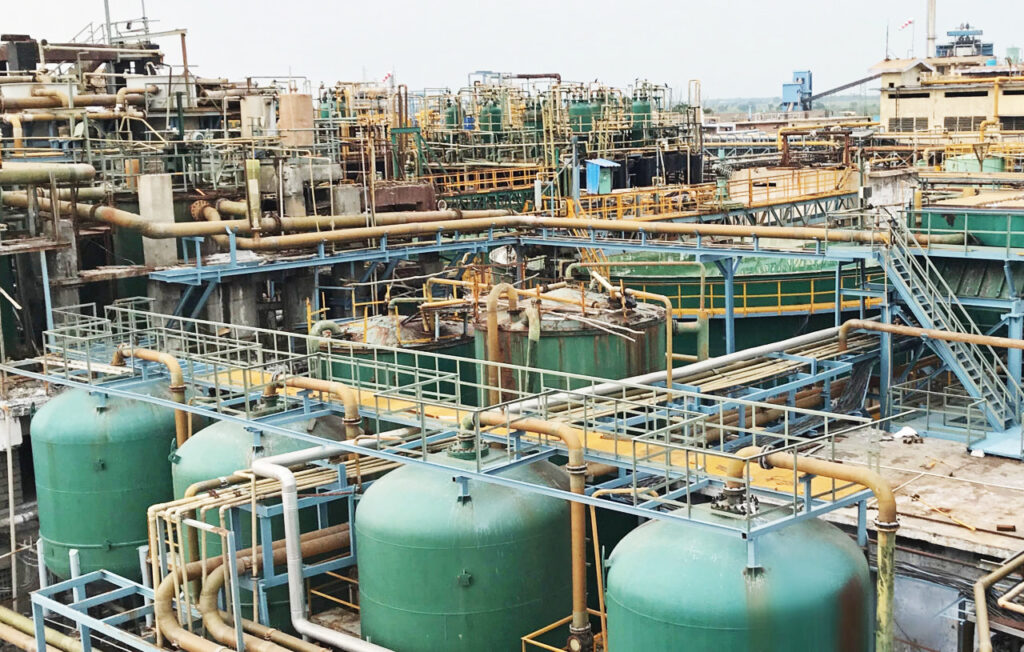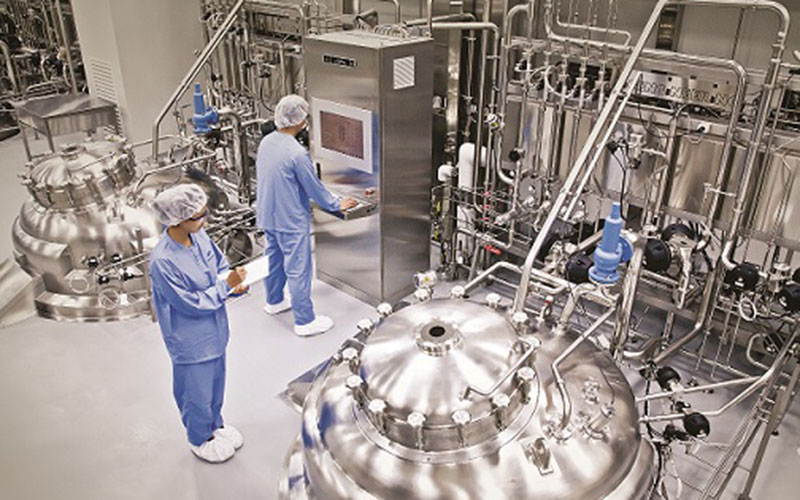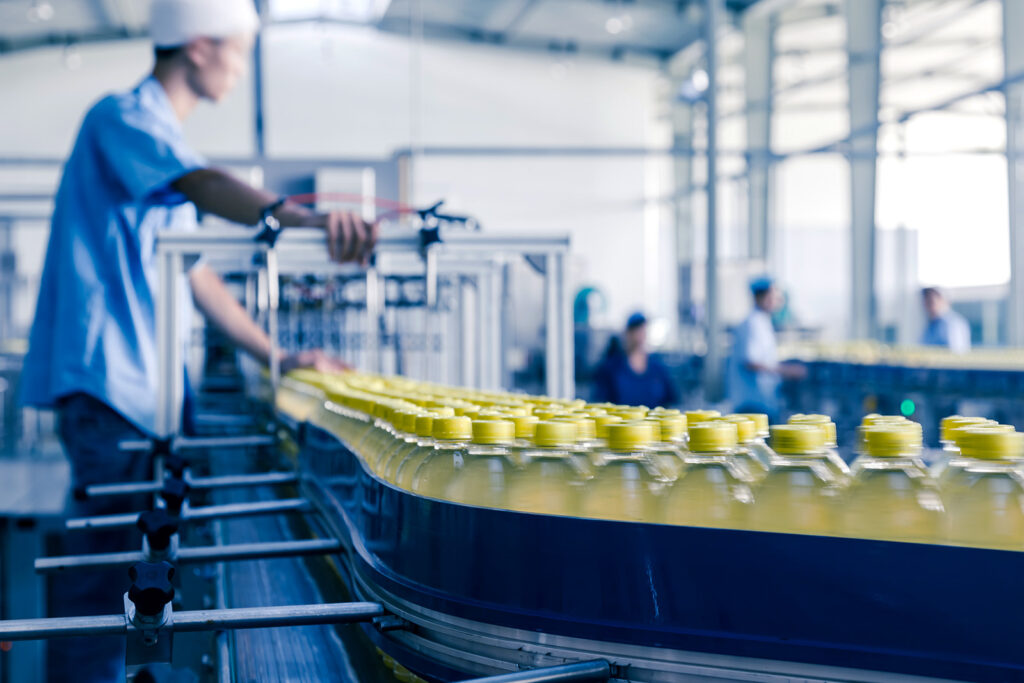The Ultimate Guide to Titanium Valve Applications
Titanium has a tensile strength comparable to that of high-strength steel, and also has excellent corrosion resistance, good heat and low temperature resistance, and non-magnetic and non-toxic properties. These excellent properties allow titanium valves to be used in many fields such as petrochemicals, aerospace, marine engineering, chlor-alkali industry, biomedicine, and food.
- ASME B16.34-2017
- 24/7 Online Service
- OEM/ODM Support
- SGS, BV and CE Certificates
- For Marine
- For Chemicals
- For Aerospace
- For Pharmaceuticals

Applications of Titanium Valves You Should Know
In the modern industrial system, valves are key components for controlling fluid flow, and their performance directly affects the stability, safety and efficiency of the entire system. From large-scale pipeline networks in petrochemicals to precision hydraulic systems in aerospace, to high-purity fluid delivery in biomedicine, valves are everywhere. Titanium valves, with their unique material properties and excellent performance, stand out in many fields and become an ideal choice for dealing with complex working conditions and harsh environments.

The titanium ball valve is a valve that uses the ball to rotate 90° around the axis of the valve stem to open and close. It works stably in highly corrosive media environments such as strong acids, strong alkalis, and seawater.

The titanium butterfly valve rotates around its own axis in the valve body through a disc-shaped butterfly plate to achieve the purpose of opening and closing or regulating the flow of the medium.

The opening and closing parts of the titanium gate valve are gate plates, which move up and down along the vertical direction of the valve seat channel axis to open and close the valve. It has excellent corrosion resistance.

The opening and closing parts of the titanium globe valve are plug-shaped valve discs, with a flat or conical sealing surface, and the valve disc moves linearly along the center line of the valve seat. Commonly used in chemical, pharmaceutical and other industries.

The function of the titanium check valve is to prevent the medium in the pipeline from flowing back. When the medium stops flowing or flows back, the valve disc automatically closes under its own gravity to prevent the medium from flowing back.

Titanium Plug Valve
The opening and closing part of the titanium plug valve is a conical or cylindrical plug with a hole. By rotating the plug 90°, the hole of the plug coincides with or deviates from the pipeline axis to achieve the opening and closing of the valve.
Titanium Valve Advantages
Titanium valves, with their unique performance advantages, are like a bright star, shining with their own light. Compared with traditional metal valves, titanium valves are not only a replacement of materials, but also a comprehensive upgrade of performance, providing reliable solutions for various complex and harsh industrial conditions.
- Excellent Corrosion Resistance
Corrosive media are a huge challenge for ordinary metal valves. They will quickly erode the surface of the valve, causing the valve’s performance to deteriorate or even damage. However, titanium valves can show extraordinary corrosion resistance in such harsh environments.
- High Strength Ratio
The density of titanium is relatively low, only 4.51g/cm³, which is higher than aluminum but lower than common metals such as steel, copper, and nickel. Titanium has a fairly high strength. It can withstand greater loads. The lightweight advantage of titanium valves can also play an important role.
- Good Heat Resistance
Titanium alloys operate stably for a long time at temperatures of 600℃ or higher. The atomic structure inside the titanium alloy can effectively resist the influence of thermal stress and thermal diffusion, thereby maintaining its key performance indicators such as strength, hardness and toughness.
- Excellent Low Temperature Resistance
Under low temperature conditions, ordinary metals tend to be cold brittle, resulting in a sharp drop in their mechanical properties. Titanium valves excel in low temperature resistance. This makes it an ideal fluid control component in cryogenic containers, storage tanks, etc.
- Excellent Anti-Damping Performance
In industrial piping systems, mechanical vibration and noise are often generated due to factors such as the flow of fluids, the operation of pumps and compressors. Titanium valves have excellent anti-damping performance and can effectively reduce vibration and noise.
- Non-Magnetic And Non-Toxic
In some special industrial fields and application scenarios, there are strict requirements on the magnetism and toxicity of valve materials. Titanium valves happen to have the characteristics of non-magnetic and non-toxic, which makes them play an important role in these fields.
Titanium Valve Application
Titanium valves have become key equipment for many industries to achieve efficient and stable production due to their excellent performance advantages. From large-scale production equipment in petrochemicals to precision systems in aerospace and high-purity fluid transportation in biomedicine, titanium valves are everywhere, injecting strong impetus into the development of various industries.
Petrochemical Industry
The petrochemical industry is a highly complex field with extremely strict equipment requirements. In the extraction, refining, transportation of oil and natural gas and the production of various chemical products, a large number of highly corrosive, flammable and explosive media are involved, such as crude oil, refined oil, acid, alkali, salt solution, etc. At the same time, these productions are often accompanied by extreme working conditions such as high temperature and high pressure, which poses a great challenge to the performance and reliability of valves.
Titanium valves are widely used in the petrochemical industry. In the crude oil extraction process, the extraction equipment of offshore oil fields needs to be in the highly corrosive environment of seawater for a long time. Titanium valves are used in key parts such as water injection systems and Christmas trees due to their excellent seawater corrosion resistance, ensuring the long-term stable operation of equipment and reducing the maintenance and replacement costs caused by corrosion. In petroleum refining, such as distillation, catalytic cracking, hydrofining, etc., it is necessary to accurately control the flow, pressure and temperature of various fluids. The good sealing, corrosion resistance and high temperature resistance of titanium valves enable them to work reliably under these complex process conditions, ensuring the quality and production efficiency of oil products.

For example, in the production of strong acids such as sulfuric acid, hydrochloric acid, nitric acid, and strong alkalis such as caustic soda, the excellent corrosion resistance of titanium valves makes it an ideal choice for conveying and controlling these highly corrosive media. Take sulfuric acid as an example. In the contact method of producing sulfuric acid, sulfur dioxide needs to be oxidized into sulfur trioxide, and then absorbed by water to make sulfuric acid. Both high-temperature sulfur dioxide gas and concentrated sulfuric acid liquid are extremely corrosive. Titanium valves can operate stably in such a harsh environment, ensuring the continuity and safety of the sulfuric acid production process. In addition, titanium valves also play an important role in the storage and transportation links of the petrochemical industry.
Aerospace Field
The aerospace field is a frontier field that represents the highest level of human science and technology, and the performance and reliability requirements of the equipment have reached the extreme. In the design and manufacture of aerospace vehicles, each component needs to be carefully selected and optimized to ensure that the aircraft can operate safely and stably under extreme environmental conditions.
Titanium valves play a vital role in the aerospace field. Because aerospace vehicles face extreme temperature changes, high vacuum, strong radiation and other harsh environments, there are also strict restrictions on weight. Titanium valves have high specific strength, good heat resistance and low temperature resistance, non-magneticity and excellent corrosion resistance, making them the preferred material for fluid control components in the aerospace field. For example, in the hydraulic system of an aircraft, titanium valves are used to control the flow of hydraulic oil and provide power support for key operations such as flight control, landing gear retraction and flap adjustment of the aircraft.

In addition, titanium valves are also widely used in ground support equipment in the aerospace field, such as engine test benches and fuel filling equipment. These equipment also need to work under harsh conditions such as high temperature, high pressure and strong corrosion. The excellent performance of titanium valves can ensure the stable operation of ground support equipment.
Marine Engineering
The marine engineering industry is a field closely related to the development and utilization of marine resources. Its equipment needs to be in a highly corrosive environment of seawater for a long time, and it also needs to withstand the effects of ocean dynamics such as waves, currents, and tides. Therefore, marine engineering equipment has extremely high requirements for the corrosion resistance, strength, and reliability of materials.
Titanium valves have unique advantages in the marine engineering industry and have become a solid shield against seawater corrosion. Seawater is a complex electrolyte solution, which is rich in corrosive substances such as chloride ions and sulfate ions, and is highly corrosive to ordinary metal materials. A dense oxide film can be formed on the surface of the titanium valve. This oxide film has good chemical stability and self-passivation ability in seawater, and can effectively resist the corrosion of seawater. In shipbuilding, titanium valves are widely used in key parts such as ship piping systems, seawater desalination devices, and ballast water systems. Titanium valves also play an important role in offshore platforms. Offshore platforms are exposed to the marine environment for a long time and must withstand seawater scouring, salt spray erosion, and severe weather. Titanium valves are used in the platform’s oil and gas extraction, water treatment, fire protection and other systems.

In addition, in submarine pipeline systems, titanium valves are used to connect and control submarine oil and gas transmission pipelines.
Chlor-alkali Industry
The chlor-alkali industry mainly produces important chemical raw materials such as sodium hydroxide, chlorine and hydrogen by electrolyzing saturated brine. Chlorine is extremely corrosive and places extremely stringent requirements on the corrosion resistance of equipment materials. Traditional metal materials will be quickly corroded in a chlorine environment, causing equipment damage. Titanium valves, with their excellent resistance to chlorine corrosion, have become an ideal choice for controlling the flow of chlorine in the chlor-alkali industry.
In the chlorine outlet pipeline system of the electrolytic cell, titanium valves are used to control the flow and pressure of chlorine and transport the chlorine produced by electrolysis to subsequent processing and manufacturing links. Due to the strong oxidizing and corrosive properties of chlorine, ordinary valves will quickly be corroded in a chlorine environment, resulting in problems such as sealing failure and pipeline perforation. The dense oxide film formed on the surface of the titanium valve can effectively prevent the contact between chlorine and the titanium matrix, thereby avoiding the occurrence of corrosion. This enables titanium valves to operate stably under conditions of high chlorine concentration and large temperature changes, ensuring the safety and continuity of chlorine delivery.

Titanium valves also play a key role in the drying, compression and storage of chlorine. In addition, titanium valves are also widely used in supporting equipment and auxiliary systems of the chlor-alkali industry, such as wastewater treatment and exhaust gas emission systems.
Biopharmaceutical Industry
The biopharmaceutical industry has extremely strict requirements on the environment and equipment, especially in terms of fluid control. It is necessary to ensure that the valves used will not cause pollution to drugs and biological products, and at the same time, they must have good corrosion resistance and cleanliness to meet the needs of high-purity fluid transportation. Titanium valves have become important equipment for fluid control in the biopharmaceutical industry due to their non-toxicity, good biocompatibility and excellent corrosion resistance.
In pharmaceutical production, titanium valves are widely used in raw material transportation, liquid preparation, aseptic filling and other links. In the raw material transportation system, whether it is an organic reagent or an inorganic solution, titanium valves can rely on their corrosion resistance to ensure the purity and quality of the raw materials and avoid contamination caused by chemical reactions between valve materials and raw materials. In the liquid preparation link, titanium valves are used to accurately control the flow and proportion of various liquid medicines. Their good sealing can prevent external impurities from entering and ensure the purity of the liquid medicine. In the aseptic filling process, the non-toxicity and good biocompatibility of titanium valves are crucial. It can avoid contamination of drugs and ensure the safety and effectiveness of drugs.

In addition, titanium valves also have advantages in the cleaning and disinfection of equipment in the biopharmaceutical industry. Since titanium valves have a smooth surface, they are not easy to absorb impurities and microorganisms, and can withstand corrosion from various disinfectants. Therefore, during the cleaning and disinfection of equipment, the cleanliness of the valve itself is effectively guaranteed to avoid secondary contamination, meeting the high standards of hygiene and safety in the biopharmaceutical industry.
Food Industry
Food is directly related to people’s food safety and health, so the hygiene and safety requirements of production equipment are extremely high. In food processing, valves need to frequently contact various food raw materials, additives and processing media, which may have different pH and corrosiveness, and the valves are also required not to pollute the food. Titanium valves, with their non-toxic, corrosion-resistant and easy-to-clean characteristics, have become important equipment for the food processing industry to ensure food safety and hygiene.
In the production of food and beverages, titanium valves are widely used in raw material transportation, processing and product packaging. In the production of juice, dairy products and other beverages, titanium valves are used to control the transportation of raw materials such as fruit juice and milk, as well as the addition of various additives and seasonings. Its non-toxic properties ensure that food will not be contaminated during the production process and meet food safety standards. At the same time, the corrosion resistance of titanium valves can resist the erosion of valves by acidic substances in juice and microorganisms in dairy products. For example, in the sterilization of canned food and the processing of baked food, the good heat resistance of titanium valves enables it to maintain stable performance under high temperature conditions and accurately control the flow and pressure of media such as steam and hot water.

In the food packaging process, titanium valves are used to control the delivery of packaging materials and the filling of food. Its good sealing performance can prevent food from being contaminated by the outside world during the packaging process, while ensuring the quality and efficiency of packaging.
Conclusion
Titanium valves play an indispensable role in many industries such as petrochemical, aerospace, marine engineering, chlor-alkali industry, biomedicine and food due to their excellent performance advantages. Their excellent corrosion resistance enables them to operate stably in highly corrosive media environments. The high specific strength characteristics achieve a perfect combination of light weight and high strength, meeting the needs of fields such as aerospace that have strict requirements on weight and strength. Good heat resistance and low temperature resistance enable them to adapt to extreme working conditions such as high and low temperatures. Excellent anti-damping performance reduces vibration and noise, and improves the stability of equipment operation. The non-magnetic and non-toxic characteristics give them unique advantages in special fields such as medical and electronic communications.